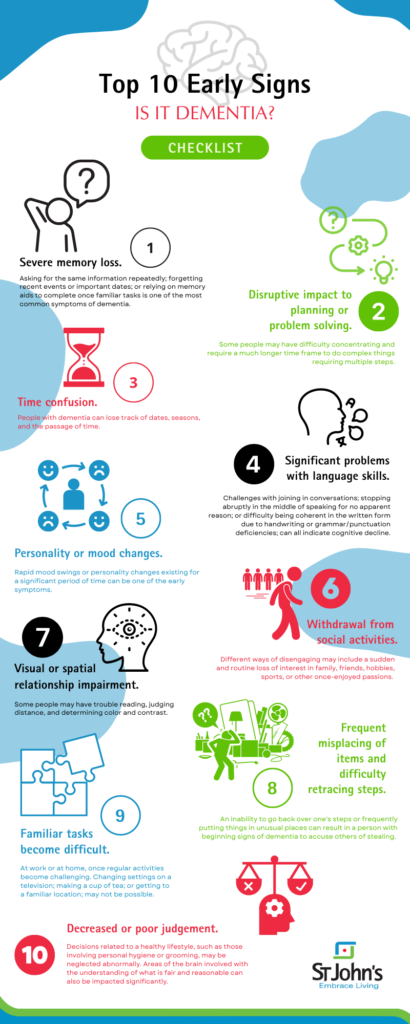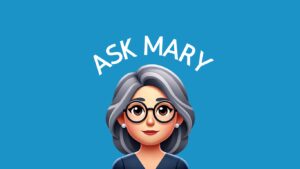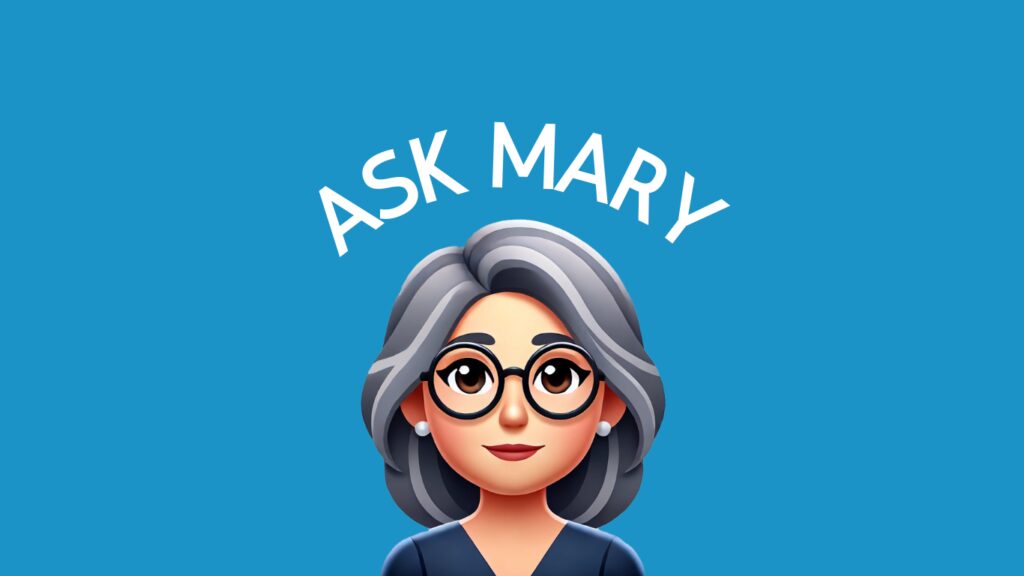The Centers for Disease Control and Prevention defines dementia as a general term for the impaired ability to remember, think, or make decisions that interferes with carrying out daily life. While dementia mostly affects older adults, it is not a part of normal aging. Alzheimer’s disease is considered the most common form of dementia; however there are other less common types of dementia such as vascular dementia and Lewy body dementia.
Older people experience some issues with memory, thinking, and behavior as a normal part of aging. However, if a person’s symptoms interfere with daily activities, family members and friends may benefit from knowing the Top 10 Early Signs of Dementia so that intervention is possible and treatment options can be discussed with a healthcare provider.
This below-listed collection of symptoms provides a framework for early diagnosis of dementia. Individuals ultimately diagnosed with Alzheimer’s disease or other forms of dementia, commonly experience two or more of these symptoms, which could be considered significant enough to impact everyday activities.
Top 10 Early Signs of Dementia

- Severe memory loss. Asking for the same information repeatedly; forgetting recent events or important dates; or relying on memory aids to complete once familiar tasks is one of the most common symptoms of dementia.
- Disruptive impact to planning or problem solving. Mental abilities needed to keep track of monthly bills or follow a recipe are impacted by dementia. Some people may have difficulty concentrating and require a much longer time frame to do complex things requiring multiple steps.
- Time confusion. People with dementia can lose track of dates, seasons, and the passage of time. As the disease progresses and there is increased damage to the cerebellum, a condition known as dyschronometria occurs, in which an individual cannot accurately estimate the amount of time that has passed.
- Significant problems with language skills. Challenges with joining in conversations; stopping abruptly in the middle of speaking for no apparent reason; or difficulty being coherent in the written form due to handwriting or grammar/punctuation deficiencies; can all indicate cognitive decline.
- Personality or mood changes. Rapid mood swings or personality changes existing for a significant period of time can be one of the early symptoms. People with related dementias can become confused, suspicious, fearful, anxious, or depressed, especially when outside of a familiar place.
- Withdrawal from social activities. Different ways of disengaging may include a sudden and routine loss of interest in family, friends, hobbies, sports, or other once-enjoyed passions. The person may also not pay attention when others are speaking to him/her.
- Visual or spatial relationship impairment. Some people may have trouble reading, judging distance, and determining color and contrast.
- Frequent misplacing of items and difficulty retracing steps. An inability to go back over one’s steps or frequently putting things in unusual places can result in a person with beginning signs of dementia to accuse others of stealing. This behavior can increase in frequency over time.
- Familiar tasks become difficult. At work or at home, once regular activities become challenging. Changing settings on a television; making a cup of tea; or getting to a familiar location; may not be possible.
- Decreased or poor judgement. Decisions related to a healthy lifestyle, such as those involving personal hygiene or grooming, may be neglected abnormally. Areas of the brain involved with the understanding of what is fair and reasonable can also be impacted significantly.
Download our Early Signs of Dementia Checklist as an additional tool to help determine if your loved one is in the early stages of dementia.
There is no cure for dementia to date. However, with a physical exam, a review of medical history, and a discussion of risk factors with a doctor, there are many interventions to slow progression of the disease and ease dementia symptoms to improve your loved one’s quality of life.







